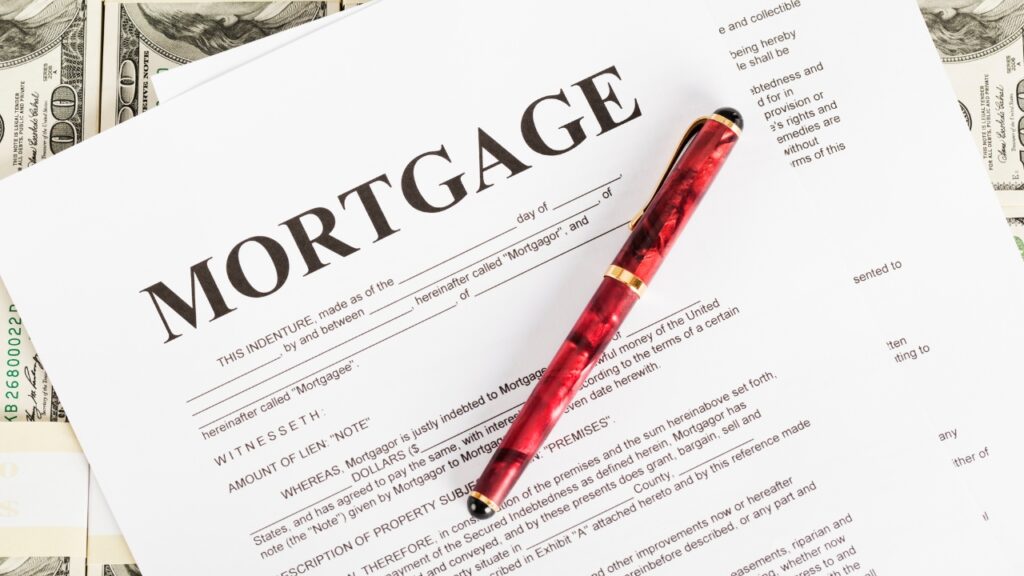When you’re preparing to buy a home, your credit score is one of the most critical factors lenders evaluate. Your creditworthiness, which is largely determined by your credit score, plays a crucial role in the mortgage approval process. It not only determines whether you qualify for a mortgage but also influences the interest rates and terms you’ll receive. While a credit score of 620 is typically the minimum for most conventional loans, there are options for buyers with lower scores, such as FHA, VA, and USDA loans. Understanding the role your credit score plays in the mortgage process can help you better prepare and potentially save thousands over the life of your loan. In this article, we’ll break down the credit score requirements for different loan types and offer tips to strengthen your financial profile as you work toward homeownership.
Key Takeaways
A minimum credit score of 620 is typically needed to qualify for most conventional mortgages, with some options available as low as 540.
Different loan types have varying credit score requirements; for instance, FHA loans can accept scores as low as 500, while jumbo loans often require a minimum of 700.
Improving your credit score can significantly impact your mortgage terms, leading to lower interest rates and overall costs of homeownership.
What is a Credit Score and Why is it Important
Credit scores are a numerical representation of an individual’s financial reliability with a range of 300-850. Lenders use these numbers to determine mortgage applications by how likely the borrower will pay back the loan. In essence, your credit score is a snapshot of your financial health. It takes into account your current debt, payment history and other financial activities to give you a glimpse of your credit history.
Most loan types require a minimum credit score of 620. Some loans are available to those with scores as low as 540. This is the industry standard for lenders to determine if you’re a high risk of default. The better the terms in the loan agreement the higher your credit score.
Getting better mortgage rates and terms is much easier when you have good creditworthiness through good credit scores. As an applicant seeking financing you’re judged mostly on these scores. So having higher scores can give you not only interest rate reductions but also more options in borrowing channels – all making the journey to homeownership smoother in transaction and less costly.
How is a Credit Score Calculated?
A credit score is calculated based on information in your credit reports, which are maintained by the three major credit bureaus: Experian, Equifax, and TransUnion. The most widely used credit score is the FICO score, which takes into account the following factors:
Payment History (35%): This is the most significant factor and reflects your history of making on-time payments, any late payments, and accounts sent to collections. Consistently paying your bills on time can positively impact your credit score.
Credit Utilization (30%): This measures the amount of credit you’re using compared to the amount of credit available to you. Keeping your credit card balances low relative to your credit limits can help improve your score.
Length of Credit History (15%): This factor considers how long you’ve had credit, including the age of your oldest account and the average age of all your accounts. A longer credit history can contribute to a higher score.
Credit Mix (10%): Having a variety of credit types, such as credit cards, loans, and mortgages, can be beneficial. It shows lenders that you can manage different types of credit responsibly.
New Credit (10%): This includes new accounts, inquiries, and credit applications. Opening several new credit accounts in a short period can lower your score, as it may indicate higher risk to lenders.
The FICO scoring model assigns points for each of these factors, and the total score ranges from 300 to 850. A higher score indicates a better credit history and a lower risk for lenders.
Minimum Credit Score Requirements by Loan Type
Mortgage loans have different minimum credit score requirements that lenders use to determine the risk of lending to different individuals. These requirements are for those considering conventional loans, FHA loans, VA loans, USDA loans or jumbo loans and can help borrowers choose the right mortgage for their financial situation.
For conventional mortgages a FICO® score of 620 is typically required according to Fannie Mae and Freddie Mac’s guidelines. Government backed loan programs like FHA, VA and USDA have more lenient credit score requirements for homebuyers.
There are also non-qualified mortgages (Non-QM) for those with scores as low as 500. This is an alternative path with more flexible lending guidelines.
Conventional Loans
Conventional loans (also known as conforming loans) require a minimum credit score of 620. Since these loans are not government backed, the risk to the lender is higher and if your score doesn’t meet or exceed this requirement you may not qualify for this type of loan and will have fewer financing options.
If you want the best interest rates on a conventional loan you should have a FICO score of 760 or above. Having this higher score can give you better loan terms and more competitive mortgage rates. In effect you can save big time on the overall cost of homeownership over time.
FHA Loans
FHA loans are backed by the Federal Housing Administration and are designed for borrowers with moderate income to buy a home. A minimum credit score of 500 is required to qualify for an FHA loan. To qualify for 3.5% down payment you need a FICO score of 580 or above.
For those with scores 500-579 FHA loan is still available. Those with scores in this range will be required to put down 10%. For those with lower scores FHA loans is a path to homeownership.
VA Loans
The Department of Veterans Affairs backs VA loans which have flexible credit score requirements. A VA loan requires a minimum credit score of 580 but some lenders may require 620. For example Rocket Mortgage approves VA loans for those with scores as low as 580.
Since lenders have different requirements for higher and lower credit scores VA loans is a good option for veterans who want to buy a property.
USDA Loans
USDA loans which are backed by the U.S. Department of Agriculture are for low to moderate income borrowers who live in rural areas. The credit score range for USDA loans is 580-620 but most lenders require a minimum credit score of 620.
A big plus of these USDA loans is no down payment required making it a more accessible option for eligible buyers.
Jumbo Loans
For properties that exceed the limits set by the Federal Housing Finance Agency jumbo loans are used and require a higher credit score. The credit score range for jumbo loans is usually around 700 minimum.
The higher credit score requirement is because lenders want to minimize their risk. So it means borrowers have enough financial strength to handle large loan amounts. So those with good credit history may find jumbo loans a good option when buying high end homes.
How Your Credit Score Affects Mortgage Rates

Lenders consider creditworthiness, as indicated by your credit score, as one of the factors in setting mortgage rates. Generally speaking, higher credit scores mean better mortgage rates during application. To get the best interest rates available with a conventional loan, you need to have a FICO score of 760 or above.
Now that you know how your credit score affects mortgage rates, you might want to work on your financials. A better rating not only opens up more lending options but also reduces the total cost of buying and owning a property.
Examples of Mortgage Rates by Credit Score
Here are some examples of mortgage rates by credit score:
Excellent Credit (760-850): 3.75% – 4.25%
Good Credit (700-759): 4.00% – 4.50%
Fair Credit (680-699): 4.25% – 4.75%
Poor Credit (620-679): 5.00% – 5.50%
Bad Credit (580-619): 5.50% – 6.00%
Very Bad Credit (500-579): 6.00% – 6.50%
Extremely Bad Credit (Below 500): 6.50% – 7.00%
Keep in mind that these are general examples and that mortgage rates can vary depending on the lender, loan type, and other factors. Your credit score plays a crucial role in determining the interest rate you’ll receive, which can significantly impact the overall cost of your mortgage.
Other Factors Mortgage Lenders Consider
While credit score plays a big role mortgage lenders also consider other factors when reviewing loan applications. They look for debt to income ratio of 36% or less to offer better loan terms.
Lenders also consider payment history as it helps them determine an applicant’s ability to pay debts. The amount of credit being used by a borrower, known as credit utilization is another factor lenders look into. These extra requirements are often called overlays that help lenders evaluate borrowers more thoroughly.
Can You Get a Mortgage With a Bad Credit Score?

It is possible to get a mortgage with a bad credit score, but it may be more challenging and expensive. Lenders may view you as a higher risk and charge you a higher interest rate or require a larger down payment. However, there are still options available for those with less-than-perfect credit.
Options for Borrowers with Poor Credit
If you have a poor credit score, you may want to consider the following options:
Subprime Mortgage: A subprime mortgage is designed for borrowers with poor credit. These mortgages often come with higher interest rates and fees, reflecting the increased risk to the lender.
FHA Loan: The Federal Housing Administration (FHA) offers mortgage insurance to borrowers with credit scores as low as 500. However, you’ll need to make a down payment of at least 10% if your score is between 500 and 579. For scores of 580 and above, a down payment of 3.5% is required.
VA Loan: The Department of Veterans Affairs (VA) offers mortgage guarantees to eligible veterans, active-duty military personnel, and surviving spouses. While there is no official minimum credit score requirement, lenders typically require a score of at least 580. Some lenders may have higher requirements.
USDA Loan: The United States Department of Agriculture (USDA) offers mortgage guarantees to borrowers who purchase homes in rural areas. While there is no official minimum credit score requirement, most lenders require a score of at least 620.
These options can provide a pathway to homeownership for those with poor credit, though it’s important to be aware of the potential for higher interest rates and larger down payments.
Alternative Credit Scoring Models
In addition to the FICO scoring model, there are alternative credit scoring models that lenders may use. Some examples include:
VantageScore: The VantageScore is a credit scoring model used by the three major credit bureaus. It takes into account the same factors as the FICO score but uses a different scoring system. VantageScore ranges from 300 to 850, similar to FICO.
TransRisk: The TransRisk score is a credit scoring model used by TransUnion. It also considers similar factors to the FICO score but uses a different methodology. The TransRisk score ranges from 100 to 900.
Equifax Risk Score: The Equifax Risk Score is a credit scoring model used by Equifax. It evaluates the same factors as the FICO score but employs a different scoring system. The Equifax Risk Score ranges from 280 to 850.
It’s worth noting that these alternative credit scoring models may not be as widely used as the FICO score and may not be accepted by all lenders. However, they can provide additional insights into your creditworthiness and may be used by some lenders in their evaluation process.
How to Improve Your Credit Score Before Buying

Improving your credit score before applying for a mortgage can get you better loan terms. Three effective ways to do this are to monitor your credit report regularly, reduce outstanding debt and pay on time.
Do these and you’ll have better credit standing and mortgage qualification and better interest rates. Fixing your credit issues beforehand can make a big difference in your creditworthiness and ability to buy a home.
Monitor Your Credit Report
You are entitled to a free credit report from each of the three major credit bureaus: Experian, Equifax, and TransUnion every year. By monitoring these reports regularly you can see the changes in your credit history and detect any errors.
If there are errors on your credit report you must challenge them by filing disputes with the credit bureau and the creditor. Monitoring your credit reports regularly helps you maintain good credit standing which is important when applying for mortgages.
Pay Down Existing Debt
Your credit score is heavily affected by your credit utilization ratios. Lenders prefer a ratio of 30% or less.
If you pay down your credit card balances but keep the accounts open it can improve your credit score. By doing this you’re lowering your credit utilization ratio which in turn has a positive effect on the scoring of new credit accounts.
Pay On Time
Paying bills on time is crucial to maintain good credit score. Your payment history which affects your credit score benefits from on time payments. A good payment history increases the chances of getting better loan options with better terms and rates.
Regularly paying your bills on time builds a good credit profile, which is important when buying a home.
Before Applying for a Mortgage
When applying for a mortgage, make sure to gather the necessary documents and know what lenders will ask for. Lenders will need you to provide W-2 forms from the past one or two years and income tax returns from the past two or three years to evaluate your income.
During the mortgage application process you must disclose all your monthly debt obligations such as loan payments and credit card bills. If you prepare your documents ahead of time you can make the entire mortgage application process more efficient and less stressful.
Why Choose Bernie Gallerani Real Estate?
Ready to take the next step to homeownership in Nashville? Bernie Gallerani Real Estate is your partner. Our team of experts will guide you through the home buying process including how your credit score affects your options. To make your journey even smoother we offer in-house mortgage services through Xperience Mortgage so you get competitive rates and one stop shopping.
Whether you’re a first time buyer looking at FHA loans or looking for the best terms on a conventional mortgage we’ll provide personalized service to your unique situation. With our knowledge of the Nashville market and commitment to service we’ll help you find your dream home and make your real estate journey smooth. Contact Bernie Gallerani Real Estate today!
